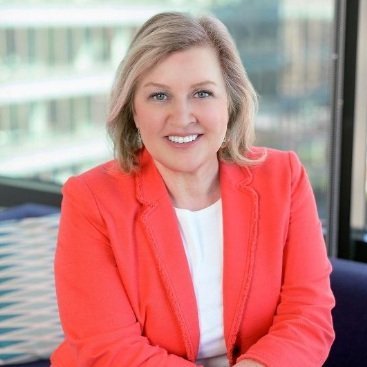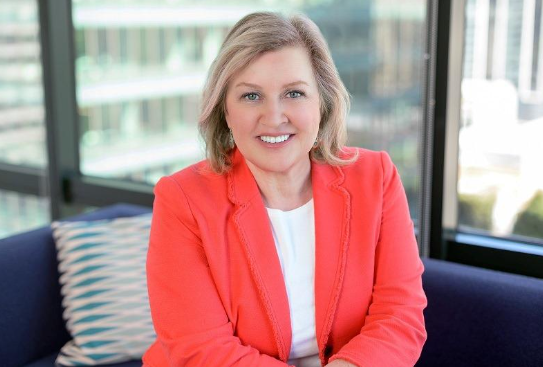I recently went one on one with Sarah Chavarria, President of Delta Dental of California. Sarah will become CEO of Delta Dental of California on January 1, 2024.
Adam: Thanks again for taking the time to share your advice. First things first, though, I would love to learn more about you. What experiences, failures and challenges have been most instrumental to your growth?
Sarah: I joined Delta Dental in 2017 as executive vice president and chief people officer, and in March 2022 also assumed the role of acting chief operations officer. I became the company’s first female president in August 2022 and now I oversee all aspects of operations, technology, growth, communications, and people. My next chapter will be assuming the role of Delta Dental’s chief executive officer in January 2024.
When I look back on moments that have been instrumental to my growth, I immediately think about my time at Levi Strauss, which was my first corporate job. As a young professional just starting out, I was hired to teach English as a second language to manufacturing employees in El Paso, TX. I quickly learned that these people had other needs and wants – they wanted to become citizens of the United States and earn their GEDs.
I volunteered to teach a class for employees and their family members to support them in their journeys. Through that, I recognized that there was a much bigger need for this kind of work. I coordinated a volunteer program, and, in one single event, we helped nationalize 400 people. I started to understand that I had a seat at the table with other leaders and it was my duty to represent these employees.
And here was my turning point: I, along with five other employees, was chosen to be trained on a new corporate initiative. They taught me all the content and sent me off with my binder and handouts. My first assignment was to go to another Texas site and tell the plant leaders that the company was changing direction, and they would need to reapply for their jobs. As you can imagine, the reaction was less than positive, and one of the veteran employees said something that would change the course of my career. He said, “You mean to tell me that they sent some college punk to tell me I lost my job?”
It actually hadn’t occurred to me until that moment, that wow, he’s right… there has to be a better way. So, I closed my presentation and sat at the table with these site workers, and we just had a conversation. From that moment forward, I recognized we can do better. Change impacts people and it became my mission to not only listen deeply to employees and understand where they are coming from, but to be their voice at the table wherever I go. These were pivotal experiences in my career, where I learned the value of listening to and connecting with employees, and it’s something I continue to bring forward into each and every one of my roles.
Adam: In your experience, what are the key steps to growing and scaling your business?
Sarah: At Delta Dental, our business growth is inherently tied to providing access to quality care through a connected experience that meets patient and provider needs in a way our competitors cannot.
We understand that access to quality care is more than a pathway to the dentist. It’s about exploring innovative solutions that have the potential to help people, and it’s about living up to our patient and provider commitments and creating a leading market solution that uses predictive data to address their needs.
To fulfill our commitment to exceptional service, we partner closely with our providers to help patients find and secure care as well as manage and finance their plans. We learned that 80 percent of U.S. adults report unmet dental care needs which they attributed to a lack of affordability. That is something we must help solve. To scale and serve more patients, we’re intentional about forging provider partnerships that create affordable care options and educate patients on how to get the most value out of their plans. We view our role as more than being a healthcare benefits administrator – we’re a catalyst for improving overall public health through increased access to quality oral care.
And importantly, innovation must be coupled with continuous learning. I’ve found we’re able to partner more closely with our providers when we are listening and inviting open conversations. This partnership helps us get patients access to care, offer affordable options, and find an available dentist when they need one.
Adam: What do you believe are the defining qualities of an effective leader?
Sarah: Some of the most talented leaders I know are professionally smart and emotionally savvy. They bring a level of curiosity and empathy and find ways to connect with others to shape their philosophies and guiding principles. They know their job isn’t to bring all the answers, but it’s to ask the right questions to unearth where the opportunities are.
As leaders, it’s our job to cultivate the connection we have with employees, help them navigate through uncertainty, and then constantly check in with them to see where they stand. What’s on their minds? What’s changed? What’s improved? By listening and starting the dialogue – even if you don’t have all the answers – you’re leading, versus managing or directing.
We once considered skills like empathy to be softer, “nice to haves,” but studies have shown that, in fact, empathy is essential to not only increasing engagement and retaining talent; it can also drive significant business results.
Adam: How can leaders and aspiring leaders take their leadership skills to the next level?
Sarah: Three main areas come to mind when I think of answering this question.
Observe and learn from other leaders. We all know how critical the manager relationship is to the experience you have as an employee. Think about exceptional managers and leaders you’ve had in the past – those who empowered you and those who gave you autonomy but supported you at the same time. We can learn so much by watching, observing and reflecting on leaders we admire. It also gives us clues to how we might want to build our own style of leadership.
Adapt your leadership style and know how to influence. For me, leadership is circumstantial. I adapt my style to address specific situations and to meet the needs of different team members. Knowing your own style, and how to adapt, is so important. From there, you can think about how you interact with different audiences and what you want them to know, feel, and do. Always walk into a meeting knowing what you want to get out of it. If you want to get to the next level, you have to be intentional about where you’re spending your time, how to use your influence to bring people on board, and then constantly seek feedback from people around you.
Know your business and industry. Aspiring leaders should make a point to deeply understand their business and be open-minded about ideas that can help the company grow. To position yourself for more leadership opportunities, it helps to have a solid grasp on the industry as a whole and your company’s place within it. Keeping up with your industry’s latest trends, and even exploring more niche topics, can only help in your efforts to drive better business outcomes.
Adam: What are your three best tips applicable to entrepreneurs, executives, and civic leaders?
Sarah:
Make a point to stay accessible and intentionally connect with your people. Tap into them by engaging with them directly, asking thoughtful questions and analyzing their feedback.
Stay open to listening, learning, and enacting change when necessary. Keep an open mind and invite your team to challenge the status quo.
Cast your leadership shadow and model the values and behaviors you’re looking to see across your organization. Get comfortable with risk – understand where you can push the limits, ask the unpopular questions in the room, and support learnings that come from failures.
Adam: What are your best tips on the topics of sales, marketing, and branding?
Sarah: When we think about the story we’re telling, it’s not just about putting words on a page; it has to be backed by exceptional experiences. We have to be the best at understanding what our stakeholders want and use market and user insights to shape our products and experiences. Once we know what they want, we can be laser-focused on where we spend our energy and create an experience that’s so good, they can’t imagine going anywhere else.
Adam: What is the single best piece of advice you have ever received?
Sarah: I once received the advice to use every communications tool that I have available to me. What I mean by that is not only being intentional about what I’m saying, but how I’m saying it and what environment I’m in. I used to think I couldn’t express emotion, but I’ve learned that some of the most powerful communication is nonverbal. Facial expressions, who you’re looking at, your body language, your tone and your pace of speaking all contribute to how you get your message across and how you influence people along the way.
This was advice I received early on in my career, but it’s something I’m now hyperaware of in my role as a leader. Understanding how you send a message, without even speaking, has been a critical learning journey for me.









